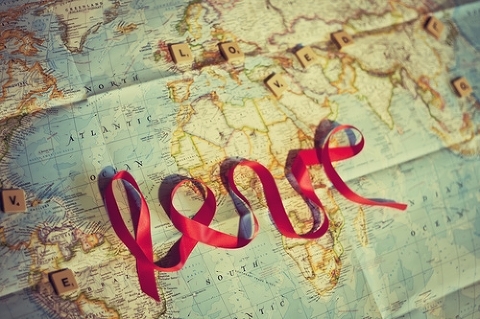Love Expressed in Different Backgrounds

The universal language of the world is love. Each individual country and culture has a certain mindset on what love is and how to show it. Even in other languages, the meaning of love can be expressed or felt deeper. From person to person. Everyone has their own definitions of love through their words and actions.
The most “traditional” way to express love is the phrase “I love you”, and while it is universally known throughout the world, it can have a more significant or lesser meaning. Depending on the location and social views, it can be hard for people to express their love for one another. These results of a fascinating study of Emotion expression and the locution “I love you”: A cross-cultural study conducted by City University of New York (CUNY) show that there is a difference in how people of different ethnic backgrounds embody their love. “Many international informants elaborated on the fact that their parents and family members, for example, do not declare their love verbally”. So, to see if this point was true, I asked multiple people of different ethnicities about their stories and when faced with the question “Do you or do you not find it difficult to say I love you or show affection towards loved ones” they replied with:
Jennifer R. (Colombian Female, 36) stated: “I was not raised in a very expressive family, and we didn’t really see eye to eye with things, and though I love them it can be very hard to express my love to them and I know it’s hard for them too.”
Carlos V. (Colombian Male, 35) responded: “To me showing love is to show gratitude respect, and happiness and that’s the reason why it’s easy for me, it’s natural, and I don’t like hiding my feelings, mainly because today we’re here but tomorrow we don’t know.”
Zachary K. (White American Male, 15, Freshman) said: “I don’t think love is expressed heavily enough as it might be in other cultures but in my personal experience, I find it easy for me to show affection with my family, etc.”
Victoria D. (Filipino Female, 14, Freshman) remarked: “For me personally it’s lowkey hard to show love with my family but it’s not so bad when it’s towards my friends!”
Magdalena Z. (Argentinian American Female, 18, Senior) claimed: “In my case, it’s very hard to proclaim our love me and my family aren’t open to saying our feelings because it’s seen as “weak”, but we do have our own little ways of showing it, like doing favors or simple gestures like making coffee every morning for each other.”
Malak O. (Lebanese Female, 14, Freshman) communicated: “Very easy in Arabic we have a lot of phrases that are very poetic when we want to express love. Even with family members. Love is a huge thing for us, and it’s expressed with words and food. Especially food.”
As you can see each and every individual independent of age and gender have their own experiences of expressing love and affection in different ways, whether it be non-verbally and through actions or easily declared. Love shouldn’t be confined to just three words it is an emotion that cannot even be explained in words. As we celebrate valentine’s day this year, it is important to note the ways we differ when it comes to how we celebrate love compared to other places in the world.
Your donation will support the student journalists of Wesley Chapel High School. Your contribution will allow us to purchase equipment and cover our annual website hosting costs.






















